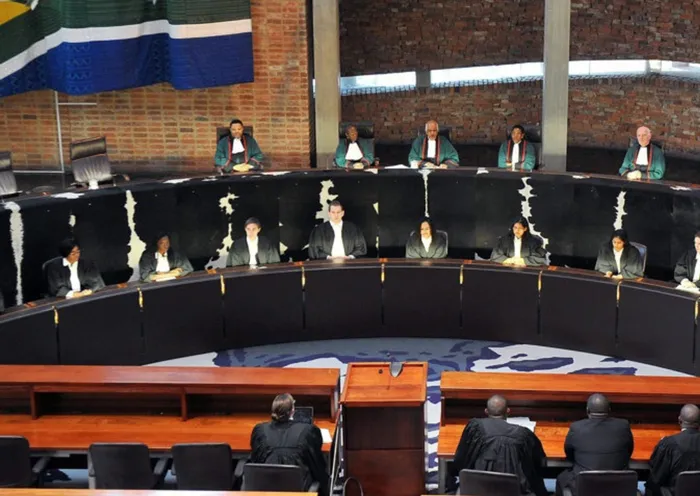Assessing concerns about the SA’s Electoral Laws Bill

Picture: Bongiwe Mchunu/ANA – The Electoral Laws Amendment Bill has triggered a debate on whether Parliament, which on some view as conflicted on the matter, should not have been the one handling the amendment process, the writer says.
By Bheki Mngomezulu
Since 1994, South Africa has been holding regular elections that are conducted by the Electoral Commission of South Africa (IEC) enshrined in Section 190 of the Constitution. Laws such as the Electoral Act (No.73 of 1998) have been providing guidelines on how these elections are to be conducted.
Noticeably, all along, the country has been fixated on the party system. Under this system, the electorate votes for political parties. Each party compiles a party list which is used to determine who goes to government at whatever level (national, provincial and local). For many years since the advent of democracy, this has been accepted as ‘normal’ practice.
Lately, concerns have been raised about the constitutionality of the Electoral Act. At the centre of the argument is the view that the Act is in contravention of the country’s Constitution in the sense that it does not allow individuals to participate in an election unless they are members of political parties. This has triggered a legal debate which ended at the Constitutional Court (ConCourt).
Delivering its judgment, the ConCourt ruled that, indeed, the Electoral Act in its current form is unconstitutional. By giving political parties the monopoly to determine the fate of the nation, the Act excludes those who may want to participate in an election but do not belong to political parties. As such, the apex court ruled that Parliament must amend the Electoral Act so that it is in sync with the country’s Constitution.
Intriguingly, the Electoral Laws Amendment Bill has triggered another debate. One view is that Parliament is conflicted on the matter and therefore should not have been the one handling the amendment process.
While this argument has substance, it has its own complications. When the ConCourt delivered its judgement, it did not advise Parliament to appoint an independent structure to implement the judgement. Instead, it directed Parliament to amend the Electoral Act. In fact, Sect. 55 of the Constitution which focuses on the powers of the National Assembly states inter alia that “in exercising its legislative power, the National Assembly may consider, pass, amend or reject any legislation before the Assembly” [Sect. 55(1)(a)].
So, looking at the issue from this vantage point, the argument might not be sustainable even though it is not necessarily baseless. The fact that the Constitution uses the word “may” and not “must” means that there is room to outsource this function. But the National Assembly would still have the final word.
An example is the Section 89 panel of three which is led by former Chief Justice Sandile Ngcobo. Its terms of reference were drafted by Parliament. Once the panel has concluded its work, it will submit its report to the Speaker of the National Assembly who will table it for consideration and decision.
Therefore, Parliament cannot be totally excluded from such processes. Even if Parliament were to appoint an independent structure to carry out this exercise of amending the Electoral Act, it would still prepare the terms of reference. In the event that some are not happy with the end product, they may come back and complain that Parliament is not supposed to be involved in the first place.
What would have assisted the debate would have been to approach the Constitutional Court and seek advice on whether the amendment process should be carried out by Parliament, which is assumed to be conflicted, or if this process can be delegated to an independent body. Since this did not happen, Parliament might argue that it exercised its constitutional obligation.
The issue that should be the main focus is the content of the Electoral Laws Amendment Bill itself, not the author of the document. For example, Section. 1(a) defines a candidate as “a South African citizen contesting an election, or a South African citizen nominated on a list of a party contesting an election, as the context requires.” Under Sect. 1(c) an independent candidate is defined as “a South African citizen contesting an election who is not nominated on a list of a party”.
These definitions address the concern raised by those who have approached the Constitutional Court. It does not matter who made such amendments. The bone of contention should be on the allocation of seats. It is possible that a popular independent candidate can obtain votes that amount to more than one seat.
If the independent candidate has three seats, she or he can only take one. The reallocation of the remaining two seats is what the discussion should dwell on. If they want the candidate to decide who to give the seats to, then that is where the focus of the argument should be. Lastly, if Parliament’s involvement is the main issue, this should have been raised earlier, not at the tail-end of the process.
Bheki Mngomezulu is a professor of political studies and international relations at the University of the Western Cape.
Related Topics: